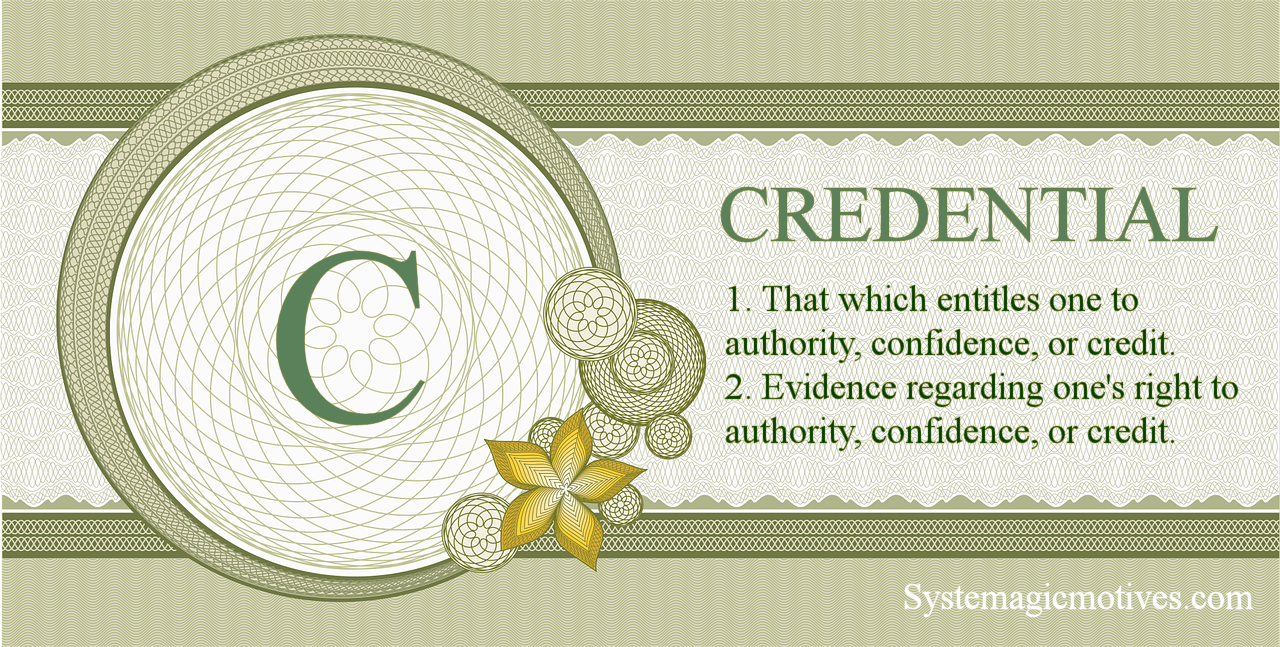The
term "credential" originates from the Latin word "credentia," which
means "belief" or "trust." In modern usage, "credential" refers to a
qualification, achievement, or piece of evidence that demonstrates a
person's competence, skill, or authority in a particular field.
Credentials are often formal documents or certifications that provide
proof of one's qualifications and are typically required to gain access
to professional roles, educational opportunities, or specialized tasks.
For example, a medical license serves as a credential for a physician,
while a diploma acts as a credential for an academic graduate.
In
various professional and academic contexts, credentials play a crucial
role in establishing credibility and trust. They help employers,
institutions, and clients assess the suitability of an individual for
specific roles or responsibilities. For instance, in the corporate
world, professional certifications such as Project Management
Professional (PMP) or Certified Public Accountant (CPA) are credentials
that signify expertise and adherence to industry standards. In
educational settings, credentials such as degrees and diplomas validate
the completion of coursework and the acquisition of knowledge.
Beyond
formal qualifications, the term "credential" can also encompass more
informal types of validation, such as letters of recommendation or
portfolios showcasing an individual's work. These forms of credentials
can provide additional context and insight into an individual's
abilities and achievements. Overall, the concept of credentials
underscores the importance of validated expertise and trustworthiness
in both professional and personal realms, highlighting how documented
proof can play a vital role in advancing one's career and establishing
credibility.

